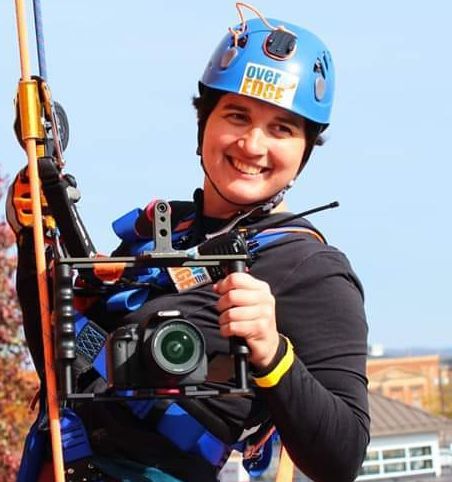As an adult probation officer, Sara Johns often meets people during the worst period of their lives.
“They are rebuilding their lives. When you’re arrested for something, no matter what it’s a traumatic event for them,” Johns said. “Once they get through the legal system they have us to rely on, fall back on, until they get on their feet.”
Johns and her partner Aaron Geiser spend a lot of time as a sounding board for their parolees, answering questions, telling them what they are, and are not, allowed to do, receiving updates about their struggles and achievements. Most of the pair’s time is spent outside the office, driving from house to house, checking in with their parolees. As adult probation officers, their job walks the fine line between counselor and enforcer.
The ultimate goal is to give them structure and accountability as they work toward finishing their court-mandated sentence. But, unlike other accountability programs in the county, Johns and Geiser can arrest their parolees when they violate the terms of their sentence.
Arrest is never the goal, Johns says. She would be happy if none of her parolees went back to jail, adding it’s important to build respect with each individual so they understand she is there to help.
“I would much rather all my offenders be successful than to take any of them away, but you have to react to the situation,” Johns said. “I think they think that once they are in the system they are trapped … and there is no way out and we are only there to detain them and we want to put them in jail.”
At about 40 individuals, Johns has one of the lowest caseloads among the other probation officers. On average, each officer has between 120 and 140 individuals at a time. John’s low numbers are due to the intense supervision required by each person – many are on medical assistance. In addition, she oversees the county’s 24/7 Program, which is targeted at second-time DUI offenders – placing them on ankle monitors that read their alcohol intake.
A realist, Johns hopes the best for her offenders, but she also understands the long, hard road of recovery.
“At the end of the day, we are all human. Something happened in their life that they struggled and they didn’t get it, but there’s just more work to be done,” Johns said. “You know they can be successful and they want to be successful, but they just couldn’t handle what life threw at them at that point.”
Heightened criticism of law enforcement in recent months has added to the stress of the job. While Johns and Geiser are not considered police officers, they do wear uniforms, carry handguns and drive in marked police cars.
Glares and obscene gestures from members of the public is not uncommon, she said.
“There are people out there that absolutely can’t stand us and they associate us with all law enforcement,” Johns said.
Interested in criminal justice since college, Johns was first introduced to the adult probation office through an internship 11 years ago. Enjoying the work, and allured by the intrigue of both supporting individuals and helping to protect the public, Johns decided to make it a career.
She doesn’t need the approval of her parolees, and it can be discouraging to see so many unmotivated to change their lives. But it’s the ones who do work hard, who do struggle to move forward and rebuild their relationships with family and friends that give Johns hope and encouragement.
“You’re really proud of them for taking it seriously and succeeding and just trying to better themselves. You see them reaching out to others in the community and saying, ‘Hey you can do this,’ and it’s just more peer support out there.”


